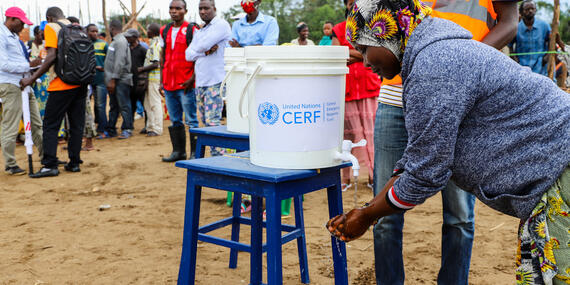
The United Nations allocated $100 million from its Central Emergency Response Fund (CERF) on Friday to support critically underfunded humanitarian operations in some of the world’s most pressing crises.
Over a third of the funds are earmarked for Yemen and Ethiopia, receiving $20 million and $15 million respectively. These allocations aim to address severe humanitarian needs, including hunger, displacement, diseases, and climate-related disasters affecting civilians in these regions.
Myanmar will also receive $12 million, Mali $11 million, Burkina Faso $10 million, Haiti $9 million, Cameroon $7 million, and Mozambique $7 million.
Countries like Burundi and Malawi, facing El Niño-induced drought and flooding, will also benefit, with $5 million and $4 million allocated respectively. Some of this funding will support climate-smart humanitarian efforts.
Joyce Msuya, acting Under-Secretary-General for Humanitarian Affairs and Emergency Relief Coordinator, noted the critical need for these resources. “In too many emergencies, a lack of funding hinders aid agencies from delivering life-saving assistance, which is heartbreaking,” she said.
“CERF funding provides a crucial emergency cash injection to prevent the worst and save lives when other humanitarian resources fall short. We urgently need increased and sustained donor support for these underfunded crises.”
This $100 million allocation marks CERF’s second for underfunded emergencies in 2024. The first allocation of the same amount was made in February for seven countries, including Chad, the Democratic Republic of the Congo, Honduras, Lebanon, Niger, Sudan, and Syria.
OCHA noted that the combined $200 million allocated this year is the lowest in the past three years, highlighting a growing gap between humanitarian needs and available funding.
The global humanitarian community seeks approximately $49 billion this year to aid 187 million vulnerable people. So far, only 29% of this funding has been secured, leaving a shortfall of $35 billion.
